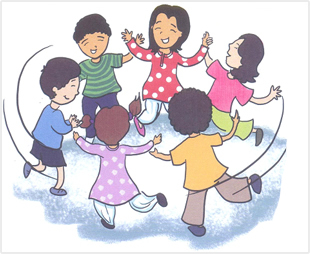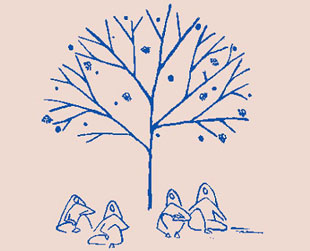Since 1999, Rozan’s program, RABTA, an Urdu word meaning Connection, has been building the capacity and enhancing the sensitivity of the police personnel in Pakistan to effectively respond to women and children; survivors of violence.
Through sustained capacity building of the police department, Rabta seeks to improve the ability of police personnel to handle cases of women and children survivors of violence and ensure their access to justice. In 2011, the program expanded its scope and took on an initiative for creating demand within the communities for democratic policing in Pakistan and put police reforms as a priority public policy agenda.
Rabta has been working in partnership with the Islamabad Capital Territory Police (ICTP) and National Police Bureau (NPB). Over the years, Rabta has evolved a stable partnership with the National Police Academy (NPA), provincial police training wings and various police colleges and schools across the country.
HOW RABTA WORKS
Capacity Development
Rabta works to bring about an attitudinal change in the police by addressing issues of self-growth, gender, and violence against women, children and other vulnerable groups. Below are the special modules/manuals Rabta has developed for this purpose
- 1. Attitudinal Change Module (ACM) for Police Instructors and Trainees
The Attitudinal Change Module (ACM) was developed by Rozan in collaboration with National Police Academy (NPA) in 2006, to make police more responsive to the needs of vulnerable groups especially women and children. The module was approved by National Police Training Management in 2006 as regular a curriculum for police training schools and colleges (PTSs/Cs) across the country. Currently the program is facilitating the effective implementation of the module. The module comprises three sections:
- Self-awareness
o Emotional Health
o Ideal policewomen/men
o Self-esteem
o Personality development
o Power
o Prejudice
- Life-skills
o Interpersonal communication skills
o Assertive behavior
o Anger management
o Stress management
o Leadership skills
- Social Awareness
o Gender sensitization
o Violence against women and children
o Islam and human rights
o International treaties on human/women/child rights
The ACM was approved for three levels within the police: i) Constables/Head Constables ii) Assistant Sub-Inspectors/Sub-Inspectors/Inspectors iii) Assistant Superintendents of Police.
As of now, Rabta has trained Police instructors of the Punjab, Khyber Pakhtunkhwa, Sindh, Balochistan, Islamabad and National Highways and Motorway Police on this module. These instructors run these courses in the Police Training Schools/Colleges (PTSs/Cs) and Recruit Training Centers (RTCs) of their respective provinces.
2. Training Manual on Interviewing Women and Children: Victims/Survivors of Violence
The training manual “Interviewing Women and Children: Victims/Survivors of Violence” was also jointly developed by Rozan and NPA. It has been approved in January 2012 by the Board of Governors (BoG) of the NPA to be taught at PTS/Cs all over the country. This manual is more skill focused, aimed at enhancing capacity of police personnel specifically the Investigation Officers (IOs) to interview women and children. The manual contents focus on knowledge, attitudes, and skills on the subject matter. Details of contents are below:
- Knowledge
o What is an interview?
o Current interviewing practices
o Understanding violence against women & children
o Legal aspects regarding dealing with the victims/survivors of violence
- Attitudes
o Myths about violence against women & children
o Ethical issues while dealing with the victims/survivors of violence
o Personal blocks and prejudice
- Skills
o Communication skills
o Interviewing skills
o Interviewing skills for handling cases of violence
Rozan conducted two workshops and a Training of Trainers (ToT) with the purpose of pilot testing the manual for Investigation Officers (IOs) belonging to various police institutions across Pakistan. In collaboration with the NPA, Rozan plans to train the police instructors at the police training colleges/schools all over the country so that they can train their trainees/students based on it.
ADVOCACY
Police, in Pakistan and other South Asian countries is oriented and trained in a certain manner that perpetuates the writ of the powerful through force and oppression rather than manifesting as a citizen-centric and service oriented institution. Women and children, in this situation become more susceptible.
In October 2010, Rozan organized a South Asian conference on ‘21st Century and Policing in South Asia, Response towards Gender-based Violence: Challenges and Prospects’. One of the key recommendations of the conference was to take strong initiatives for police reforms in order to see real change in the police culture. A reformed police institution, more democratic and citizen-centric, can contribute significantly to the improvement of larger culture of injustice, discrimination and lack of human dignity in the society. It was recognized that gender training of police would have limited impact if was not backed up by gender responsive laws, policies and state structure.
In an attempt to fill this gap, in 2011 Rabta, together with other partner CSOs, including Aurat Foundation, Center for Peace and Development Initiative, Shehri-CBE, Strengthening Participatory Organization, Individualland and several others, took an initiative to increase demand amongst CSOs for police reforms and established the Pakistan Forum for Democratic Policing (PFDP).
The PFDP’s purpose is to make democratic police reforms a priority of public policy agenda by strengthening the role of civil society for raising demand for police reforms. The PFDP carries out researches, organizes dialogues and seminars on the subject of legislative, financial, administrative, and infrastructural reforms in the police, the forum also arranges community-policing events and undertakes advocacy campaigns for reforms at police stations as well as at macro level by assisting the police and the government. The PFDP works to make the police more citizen-centric and gender sensitive. There are five chapters of the PFDP, one each in Sindh, Khyber Pakhtunkhwa, Punjab and Balochistan and Islamabad that contains around 180 members of civil society including the representatives of academia, media, national and local NGOs and CBOs, religious minorities transgenders, lawyers and the business community. http://www.thePFDP.org/
PAST HIGHLIGHTS OF RABTA
- Training of over 4,000 policemen/women together with National Police Academy (NPA), Islamabad Police, provincial police departments, National Highways and Motorway Police, of diverse ranks from constables to Senior Superintendents of Police (SSsP) on self-growth, gender, and violence against women and children.
- Publication of a paper in the UN INSTRAW series http://www.un-instraw.org/pdf/oth-mensroles.pdf
- Mention of Rozan’s Rabta-Police Program as a best practice case study in the Security Module for UN Women’s Virtual Knowledge Centre. This module outlines key approaches and intervention strategies for engaging the security sector and provides step-by-step guidance on how to design, implement, monitor and evaluate initiatives that work with the police primarily (and in specific contexts, the military) to respond to violence against women and girls.
http://www.endvawnow.org/en/modules/view/13-security.html
PUBLICATIONS & IEC MATERIAL BY RABTA
| Sr. # | Title |
| 1 | Building Bridges Rabta Project Report 1999-2001 |
| 2 | Creating Context for Change Rabta Project Report 2001-2004 |
| 3 | Attitudinal Change Module (ACM) This is an approved training curriculum to be taught to Police trainees being trained at Police Training Schools/Colleges (PTSs/Cs) all over Pakistan. The ACM is a 3-set training module for three cadres: i) Constables/Head Constables, ii) Assistant Sub Inspectors/Sub Inspectors/Inspectors, iii) Assistant Superintendents of Police |
| 4 | Training Manual on Interviewing Children and Women Victims of Violence A manual for in service Investigation Officers (IOs) and police instructors |
| 5 | Recommendations from the South Asian Conference on 21st Century and Policing in South Asia, Response towards Gender Based Violence (2010) |
| 6 | Poster on rights of women as complainants or offenders |
| 7 | Hum Apni Duniya Badlain Gey Booklet on Attitudinal Change |
| 8 | Quest for Democratic Policing By Ehsan Sadiq |
| 9 | Research on Policing challenges and opportunities in post conflict Swat: Needs of women, children and minorities |
| 10 | Process documentation and Assessment Report of Swat Police Training and Mentoring cycle-2015 |
| 11 | Training of Police Officers for Building their Sensitivity, Knowledge and Skills to Effectively Deal with Transgender Persons |
| 12 | Training module ‘Advocacy Skills on Police Reforms’ |
| 13 | Module on Basics of Participatory Action Research |
| 14 | Narrative Report of project “Preventing GBV through Democratic Policing” |
| 15 | Advocacy campaign Report by the PFDP-Sindh Chapter |
| 16 | Referral Directory to Respond to the Needs of Women Survivors of Violence |
| 17 | Posters on Cognizable and non-cognizable offences and Killing in the name of honor |
| 18 | Flyers on Anti-women practices in Pakistan, Anti-sexual harassment at work place 2010 and Guidelines for lodging FIR |
| 19 | Posters on پولیس اصلاحات کےلئے شہریوں کے مطالبات, جنسی تشدد کے جرائم and تشدد کے خلاف قانون موجود ہے |
| 20 | Periodic Newsletters of the PFDP |
| 21 | Directory on Pro-Women Laws |
| 22 | Reprinting of Training Manual on Nikah Nama |
| 23 | Booklet on “Hum Apni Duniya Badlain Ge” |
| 24 | Video Documentary on Rabta’s Work |
| 25 | Video Documentary on 20 Years Journey of Rozan |


